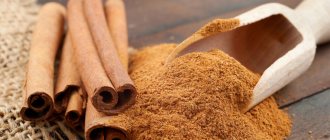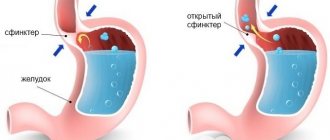Let's try to figure out what causes the sour taste in the mouth. Let's consider the main causes and treatment in various ways, symptoms of diseases and their classification. After all, you need to know which doctor to contact if this phenomenon is not associated with meals and acidic foods.
Very often, such an unpleasant sensation is accompanied by various additional symptoms and indicates the onset of pathological processes in the internal organs. This means that you urgently need to visit the clinic, undergo a full examination and determine what disease causes the appearance of acidic saliva.
Causes
In the simplest and most harmless case, the factors that caused an unpleasant sourness in the mouth are the results of food addictions. But if such taste sensations are observed constantly, then you need to figure out why this is happening, what their symptoms mean and examine the body as a whole to establish the internal cause.
Common ailments that affect the condition of saliva are the following:
- Problems of the gastrointestinal tract - these include gastritis, ulcers, gastroesophageal reflux disease, diaphragmatic hernia, gastroduodenitis, chalasia cardia, increased acidity of gastric juice and other dysfunctions of these organs.
- Dental pathologies - the presence of caries, gingivitis, periodontal disease and other inflammations of soft and hard tissues contribute to the active spread of bacteria in the mouth. And this, in turn, is accompanied by the appearance of sour saliva, an unpleasant taste and bad breath. Even after tooth extraction, this side effect can occur.
- Taking some strong medications is also accompanied by a change in acidity in the mouth, which is felt as a sour, bitter or salty taste.
- The presence of heartburn in addition to this may indicate problems with the pancreas. And bitterness is about disorders of the liver or biliary tract.
- Lack of fluid, dehydration leads not only to problems with taste, but also to a sharp decrease in salivation.
- Indulgence in foods such as spicy, fried, fatty, sour and other harmful food addictions can temporarily change the state of saliva. But their long-term use leads to disruption of the gastrointestinal tract, so they should be removed from the diet to maintain health.
Obviously, if after sweets or, for example, after watermelon, you have a sour sensation, then this indicates a disruption in the functioning of the stomach. Any additional symptoms that appear periodically or on an ongoing basis also indicate a disease.
Elimination of symptoms in gastrointestinal pathologies
To eliminate an unpleasant taste, it is necessary to determine the root cause of the symptom - a disease of the digestive system that causes heartburn and the release of acid into the food cavity.
With timely diagnosis and fully carried out step-by-step treatment, the prognosis is favorable. When pathology becomes a chronic process, life-threatening conditions may arise.
Advice. There is no need to guess why there is a sour taste in your mouth. The appearance of this symptom often indicates a dysfunction of the gastrointestinal tract. The best thing you can do to restore your health is to visit a gastroenterologist on time and undergo the necessary examination.
After receiving the diagnostic data, the doctor will determine the required amount of medical care, prescribe treatment and determine the need to follow a diet. It is important to follow the doctor’s advice and, together with a specialist, achieve a complete recovery, rather than eliminating symptoms for untreated pathology.
Based on the existing symptoms, the doctor will make a preliminary diagnosis and prescribe a series of studies to clarify the extent of the process and determine the stage of risk of complications.
The most informative methods are FGDS, ultrasound of the abdominal organs, X-ray of the digestive system (if necessary with contrast).
Treatment will depend on the established diagnosis and the extent of the pathology. For early-stage diseases, following a therapeutic diet is often sufficient. In advanced forms, surgical intervention may be necessary.
Classification
A variety of unpleasant taste sensations for no reason are divided into the following:
- sweet and sour - indicates problems of the nervous system, possible increased blood sugar, turns out to be a consequence of periodontal diseases, gastrointestinal and liver pathologies, chemical poisoning, or even the result of an attempt to quit smoking;
- with notes of bitterness - most often detected in the morning and indicates an excessive passion for fatty foods, smoking or alcoholic beverages, indicates an overloaded liver, stomach, gall bladder and the onset of pathologies with these organs, and may also be the result of taking certain medications (for example, antibiotics );
- sour with a metallic taste - indicates blood discharge in the mouth, the presence of metal elements and structures (braces, piercings, dentures), inflammation of the gums, the formation of stomatitis or even diabetes; hormonal disorders are also a common cause of this in women during pregnancy or in adolescents ;
- sour-salty - is a consequence of inflammatory processes in the mucous membrane, a signal of dehydration, or as one of the symptoms of disruption of the ENT organs; it can be the result of poor nutrition for a long period, overeating or indulging in coffee, tea, carbonated drinks, etc.
Dental pathologies
Dental problems can also cause a sour taste.
Your mouth may feel sour after eating due to oral diseases. If inflammatory processes occur, the acidity of the oral cavity increases due to the proliferation of bacteria. The reasons may be different:
- periodontal disease;
- caries;
- gingivitis;
- stomatitis;
- candidiasis.
It is inflammatory gum disease that causes a sour taste in the mouth, especially during or after eating, and is associated with bleeding gums. Caries is almost always accompanied by secondary bacterial infections, which causes an unpleasant taste.
The cause of a sour taste after eating can also be dental caries.
Dentures in the mouth, especially those made of metal alloys, can also cause a sour taste, especially after eating foods that promote oxidation. Before visiting a doctor, you can get rid of the unpleasant sensation using various rinses. In addition to the sour taste, such pathologies are accompanied by additional symptoms:
- toothache;
- inflammation of the gums;
- swelling on the gum;
- The temperature may increase as flux develops.
If such symptoms occur, you should consult a doctor and undergo treatment.
Symptoms
If a sour taste in the mouth is accompanied by other signs of disease, then you should immediately consult a doctor for quality advice and diagnosis and get rid of the main cause that caused them:
- pain in the abdomen, liver area or other internal organs;
- nausea and vomiting;
- belching;
- heartburn;
- excessive salivation or, conversely, dry mouth;
- diarrhea;
- white coating on the tongue and an unpleasant odor.
Some people think that only a sign of heartburn indicates problems and pathologies. In fact, diseases of internal organs can manifest themselves even in its absence, as they are the result of various disorders. Therefore, without heartburn, but with other unpleasant symptoms, you should also consult a doctor for advice.
Let us briefly consider the main pathologies of the gastrointestinal tract that can be reflected in a sour taste. Please note additional symptoms:
- With gastritis - pain when hungry, a feeling of heaviness after eating, nausea and periodic vomiting with an increased sour taste, belching, increased salivation, heartburn, alternating attacks of diarrhea with constipation, weakness, drowsiness and apathy.
- With gastroesophageal reflux pathology, nausea and vomiting, a feeling of heaviness in the stomach after eating, pain, and a sour taste are most noticeable in the morning.
- With a stomach ulcer, changes in the stages of remission and exacerbations are observed. And the symptoms manifest themselves in the form of severe pain, especially after eating, heaviness in the upper abdomen, heartburn, vomiting, nausea, etc. This symptomatology is similar to gastritis, but its intensity is much higher. You should not delay diagnosis, as unpleasant signs can result in internal bleeding and even develop into a cancerous condition.
- With a diaphragmatic hernia, in addition to a sour taste, there is heartburn, sharp pain not only in the abdomen, but also in the chest area, shortness of breath when lying down.
If these manifestations occur, you need to visit a gastroenterologist or therapist. If the signs only indicate unpleasant symptoms in the mouth and do not affect the internal organs, then it is quite possible that it is enough to undergo sanitation at the dentist.
Diagnostic methods for persistent discomfort
If you constantly feel acid in your mouth, you need to go to the hospital and get diagnosed.
- Visit your dentist to check the condition of your teeth and gums.
- Consult a gastroenterologist. Do a gastroscopy to rule out ulcers or gastritis.
- Donate blood for sugar and glycosylated hemoglobin to rule out diabetes.
- Undergo an ultrasound examination of the liver and gall bladder.
- Donate blood for helminths.
- Pregnant women should contact their gynecologist and, if necessary, undergo tests that will show hormone levels.
Video: What does the taste in your mouth mean?
Treatment for sour taste in mouth
To determine the correct manipulations, you first need to undergo diagnostics and understand the root cause of the disease. This is the only way to properly influence the source of pathology.
The main methods are examination of the oral cavity, ultrasound of internal organs, FGDS and x-rays with contrast. Specific treatment methods will directly depend on the problems identified.
After meal
If the unpleasant sensation does not go away from heavy consumption of acidic foods, then it is better to simply rinse your mouth with clean warm water or use the following manipulations:
- make a decoction of chamomile or sage, a solution of soda and rinse your mouth after meals, morning and evening;
- brush your teeth;
- maintain a drinking regime - you need to drink at least 1.5-2 liters of water per day;
- To eliminate the sharp sour taste, you can use chewing gum.
And in order to avoid such problems from eating at all, it is advisable to change your diet a little: add porridge, beans, mushrooms, fermented milk products, switch to green tea. Try to avoid fried, spicy foods, smoked foods and other unhealthy delicacies.
During pregnancy
Separately, it is worth recalling that women during such a period suffer from a lot of unpleasant sensations. One of them is a sour taste in the mouth almost constantly. This may be the result of the following phenomena:
- non-compliance with healthy eating rules;
- hormonal disruptions, in which the amount of estrogen increases, which looks like selective food aversions, nausea and vomiting, as well as increased perception of smells and impaired taste;
- high levels of progesterone cause smooth muscles to relax too much, which leads to heartburn, sour taste and other unpleasant symptoms;
- An increase in the uterus and the size of the fetus causes physical pressure and displacement of internal organs, which causes a temporary disruption of their functioning.
In each of these cases, treatment is carried out symptomatically, since most of these problems will disappear after childbirth. You must tell your doctor about your feelings and he will prescribe the right diet, as well as recommend taking simple and safe remedies to alleviate the condition.
Gastrointestinal problems
The most common pathologies that cause a sour taste in the mouth remain diseases of the gastrointestinal tract and other internal organs. Therefore, you should not ignore such signs. It is imperative to undergo a full examination and treat the detected pathologies together with a gastroenterologist, under his close supervision.
At the same time, it is very important not only to take medications, but also to strictly adhere to the prescribed diet. To alleviate the condition, Almagel, Maalox, as well as antacid drugs in the form of Famotidine, Ranitidine and Zantac are used.
Dental pathologies
If a sour taste in the mouth appears due to problems with the gums or teeth, from the formation of caries, gingivitis and other similar diseases, then it is enough to simply treat them. The dentist should be visited at least twice a year, as well as for any signs of developing pathology.
Only by eliminating caries, relieving inflammation of the gums and undergoing the prescribed treatment, you can forget about the sour taste, bad breath, dark spots on the enamel and other symptoms. You need to understand that untreated dental diseases will eventually lead not only to local complications, but also to pathologies of internal organs, since the infection will get inside with saliva and food.
Video: 3 warning signs in your mouth.
Diagnostics
Depending on the current clinical picture, consultation with a gastroenterologist, infectious disease specialist, dentist or general practitioner may be necessary. First of all, an objective examination of the patient is carried out; it is necessary to collect complaints, anamnesis of the disease and the patient’s life.
To establish the root cause factor, the following laboratory and instrumental examination methods can be carried out:
- general clinical analysis of blood and urine;
- blood chemistry;
- gastroenterological studies;
- MRI;
- CT;
- Ultrasound of the abdominal organs, genitourinary system;
- radiography of internal organs;
- immunological studies;
- PCR diagnostics.
Based on the examination results, the doctor can determine the root cause, the etiology of the disease and prescribe the correct course of treatment.
Prevention
For the sake of maintaining general health and immediately eliminating the sour taste, you should adhere to the following recommendations from doctors:
- Try to follow the principles of proper nutrition, avoid junk foods and heavy foods.
- Drink the recommended amount of clean water and replace coffee with green tea.
- It is enough to drink a glass of freshly squeezed fruit or vegetable juice a day.
- You need to get rid of bad habits, especially smoking and drinking alcohol.
- Maintain daily oral hygiene - brush your teeth twice a day and rinse them after every meal.
- After dinner, it is advisable to take a short walk in the fresh air and only then go to bed.
Summarizing
Ignoring unpleasant sensations in the mouth is not paying attention to your health. The least common cause of oral discomfort is dental problems, which can be resolved relatively quickly. If the local course of the problem is excluded, it is necessary to consult a general practitioner.
Do not self-medicate, but consult a specialist
The doctor will ask about accompanying symptoms, which the patient may not pay attention to or simply get used to. Based on the information collected, the therapist will suggest you undergo a series of diagnostic tests and visit a specialized doctor: gastroenterologist, neurologist, endocrinologist. Don't close your eyes to the taste of possible illness! Take care of yourself.
Hormonal changes in the body
Hormonal changes during pregnancy can cause a sour taste in the mouth
Pregnancy is a period of hormonal changes in the body, especially in the first trimester. Often after eating, the mouth becomes sour for many reasons:
- the most common cause is a poor diet. Pregnant women often choose sour, salty or spicy foods; oversaturation with such food cannot but affect the functioning of the digestive organs. In this case, you need to take care of proper nutrition, and the unpleasant symptom will disappear on its own;
- sour saliva occurs due to an increased release of estrogen into the blood, usually this occurs in the first months of pregnancy and is associated with changes in hormonal levels;
- in the first half of pregnancy, the production of progesterone increases; the body needs this hormone in order to maintain the pregnancy. Due to this, the uterine muscles relax, but the same happens to the smooth muscles of the digestive system. For this reason, food from the stomach periodically enters the esophagus, which causes heartburn and a sour taste in the mouth;
- the second half of pregnancy can also cause a sour taste in the mouth after eating, this is due to the fact that the uterus grows and puts pressure on the digestive organs. This promotes the reflux of gastric juice into the esophagus along with its contents;
- the pregnant uterus for a long period of time puts pressure not only on the digestive organs, but also on the liver and gall bladder, which causes a sour-bitter taste in the mouth, especially after eating.
Antacids act against acid
Non-absorbable antacids neutralize the acid that has entered the esophageal tube: Almagel, Maalox, Phosphalugel, Gastal. Almagel Neo contains simethicone to eliminate bloating. Almagel A suspension is available with an anesthetic component. Gaviscon, in addition to the antacid, contains alginic acid and alginates. They create a gel-like film in the upper part of the stomach that prevents reflux.
Antacids quickly get rid of the sour taste and save you from severe heartburn. Unfortunately, long-term use may cause disturbances in the metabolism of calcium and magnesium. Any antacids only eliminate symptoms and have virtually no effect on the underlying causes of the disease.
Important! Unlike antacids, H2 receptor blockers, as well as proton pump inhibitors, do not simply neutralize acid, but reduce its production in the stomach.
Before getting rid of sour belching with the help of medications and herbs, it is recommended to consult a doctor. There are methods that allow you to determine the level of acidity, for example, pH-metry. For normal, elevated and decreased values, you need to take different medications.
Remedies
Naturally, methods for eliminating this unpleasant sensation are directly related to the causes that cause it.
- If the reason is poor nutrition, then by balancing your diet, excluding provoking foods, and adding to it such as buckwheat, baked goods with bran, beans, seaweed, spinach and eggplant, you can easily get rid of the feeling of sour taste in the mouth.
- Normal fluid intake, and we are not talking about alcoholic or carbonated drinks, but pure filtered water, the consumption of which should be increased to two liters per day, will also help normalize the functioning of the body as a whole and, in particular, eliminate the sour taste in the mouth.
- Disorders of the gastrointestinal tract require mandatory consultation with a gastroenterologist . The specialist will order the necessary tests, determine the level of stomach acidity and prescribe appropriate treatment. As a rule, during this period you should avoid sour, spicy and too salty foods. Such treatment is usually accompanied by a special diet, which is selected by the doctor.
- When the cause is bacterial oral infections and dental problems, you cannot do without the help of a dentist. Regular rinses are unlikely to give a positive result. Properly prescribed treatment and removal of caries followed by dental filling will certainly relieve discomfort.
- The appearance of a sour taste in expectant mothers is also a reason to visit a gastroenterologist, so that against the background of increased acidity it does not provoke the further appearance of gastritis or stomach ulcers.
Causes and treatment of sour-bitter belching
A small amount of air is thrown into the esophageal tube from the stomach, which is accompanied by a characteristic sound. This is a burp that causes a lot of trouble. The acidic contents with gases cause severe irritation to the taste buds of the tongue. Additionally, difficulty swallowing and burning, hiccups, and heaviness under the sternum may occur.
Sour belching is often combined with painful heartburn. This usually occurs when the gastric juice is too acidic. Decreased acid production is usually accompanied by the release of hydrogen sulfide and a “rotten” taste sensation. Discomfort occurs immediately after eating or after some time, and bothers you at night.
The following medications will help eliminate sour belching in combination with heartburn:
- Nolpaza, Omez, Rabeloc are proton pump inhibitors that prevent the formation of hydrochloric acid.
- Rantidine, Gistak, Famotidine, Kvamatel - H2-antihistamines, heartburn tablets that reduce the production of hydrochloric acid.
- Gastracid, Maalox, Phosphalugel, Rennie are antacids, acid neutralizers in the esophagus.
- Pancreatin, Mezim, Festal - enzyme complexes to improve food digestion and facilitate the functioning of the pancreas.
- Motilak, Domperidone are antiemetics, prokinetics, accelerating the digestion process, preventing stomach laziness.
- Amoxicillin, Azithromycin - antibiotics to get rid of the bacterium Helicobacter pylori, which causes the development of gastritis and ulcers.
- De-Nol is a drug that contains bismuth, used together with antibiotics to reduce acidity and better protect the gastric mucosa.
- Baktisubtil, Yogurt, Bificol, Acipol are probiotics for normalizing intestinal microflora.
Enzyme preparations will help fight the unpleasant taste in the mouth due to chronic inflammation of the pancreas. Take Pancreatin or Creon capsules for a long time to relieve the diseased organ. The drugs No-shpa, Duspatolin, Baralgin eliminate pain and spasm in pancreatitis. The effect of medications is enhanced by herbal collections that have anti-inflammatory and soothing properties.
Choleretic drugs are used for chronic inflammation of the gallbladder. The drugs Hofitol and Ursofalk will help combat the bitter-sour taste in the mouth. They prevent stagnation of bile and help normalize its excretion into the duodenum.
Diet is part of the treatment. The diet must include products of plant origin: cereals, fresh and stewed vegetables, sweet fruits. Among the drinks, green tea, bifidok, and kefir are preferable.
It is important not only how to treat sour belching with heartburn, but also how to prevent the appearance of symptoms of gastric contents reflux into the oral cavity. You should avoid spicy foods, foods containing a lot of acid, coffee, alcohol, chocolate, do not smoke, and raise the head of the bed by 15–20 cm while sleeping.
How to use folk remedies
To neutralize the sour taste as much as possible, you need to rinse your mouth with chamomile decoction.
If you are not a fan of treatment with chemicals, well-known traditional medicine that has been proven over the years and generations will work well. It is worth using them in addition to medications during traditional medical treatment.
You can get rid of the problem of taste in the mouth forever only by eliminating the cause of its occurrence, however, for those who cannot yet see a doctor or do not risk taking medications due to pregnancy, you can use traditional medicine methods:
- In order to neutralize the sour taste as much as possible, you need to rinse your mouth with a decoction of chamomile or sage and soda after every meal, in the morning and before bed.
- Thorough brushing of teeth several times a day is necessary.
- In order to avoid disturbances in electrolyte metabolism, you need to consume at least two liters of drinking water per day.
- Using chewing gum or special sprays that mask the odor well will temporarily relieve unpleasant sensations.
There are also remedies that help alleviate or eliminate the very cause of the sour taste in the mouth. Among them are:
- Mumiyo. The following remedy will help eliminate increased acidity: 1 gram of mumiyo must be dissolved in 1 liter of boiled milk. It is recommended to take a glass of the solution for a month, half an hour before meals. You should take three courses with breaks of 10 days.
- Shortly before meals, drink a teaspoon of sea buckthorn oil. In order to remove acid from the oil, it is recommended to pour it into cooled boiled water before use, shake well for several minutes and collect it from the surface of the water. The acid will remain at the bottom.
- Take 2-3 grams of cinnamon before eating. It is recommended to drink it with water. Cinnamon cleanses the kidneys well and relieves pain.
- Instead of sugar, it is recommended to use honey herb (stevia), which does not increase the acidity of gastric juice.
- Stomach acidity is normalized if you eat baked or boiled pumpkin more often. It is recommended to take it as a dietary supplement, starting with 30 grams per day, gradually increasing the dose to 150 - 300 grams (in fractional portions).
- Increased acidity is also normalized by mineral water containing a large amount of alkali. Before drinking, the water must be heated, stirred and the gas allowed to escape. Drink half a glass in one gulp half an hour before meals.
Treatment - is it possible to get rid of acidity in the mouth?
In order to eliminate the pathological sensation of sourness in saliva, it is necessary, of course, to establish the source that causes such unpleasant feelings. This method of therapy will be the most effective and long-term, and will also eliminate the development of relapse of the disease. If it is not possible to conduct a full diagnosis of the body and there is an urgent need to extinguish acidity as soon as possible, then in this case it is recommended to use the following therapeutic methods.
Repaying with soda
In the treatment, ordinary baking soda is used, which is intended for the manufacture of confectionery products and is essentially a leavening agent for dough. In addition, this substance is capable of neutralizing acids of all types and varieties. During the treatment process, a person takes half a teaspoon of baking soda and dissolves it in 1 glass of warm water. The resulting solution is drunk in one gulp. It is taken on an empty stomach or 15 minutes before meals.
Reduces the concentration of acid not only in the mouth and stomach, but also directly in all tissues of the body. This medicine is taken 2 times a day - morning and evening. Duration of therapy is 5-6 days. Usually during this period the symptoms of acid in the mouth are completely neutralized.
Diet
Drawing up a diet that includes foods with a reduced level of concentration of organic acids is also an equally effective method of treating the disease. To do this, a person completely excludes the following food from his menu:
- tomatoes, juices and dishes prepared using this vegetable;
- rye bread, in the baking process of which live yeast starters are used (it is better to switch to pancakes, flatbreads or pita bread, the composition of which is flour, salt and water);
- grapes, fresh fruits and vegetables that are initially too sour due to the characteristics of the variety or due to insufficient ripeness;
- soft drinks containing carbon dioxide;
- black tea, coffee and cocoa beans (these products increase the concentration of gastric juice);
- cabbage, beets, rutabaga (regardless of how the product was prepared);
- fermented milk products of all types with the exception of hard cheese;
- dishes containing animal fats, as well as all kinds of pickles, spices, marinades, spicy and fried foods.
The diet should include cereal porridges, liquid vegetable soups, meat broths, pike, perch, carp, and grass carp meat. It is allowed to steam or boil the meat of chicken, rabbit, and turkey. Everything must be lean. Already on the 2nd day from the start of using this therapeutic diet, the feeling of acid in the mouth gradually decreases, and then completely disappears. This is the first sign of cleansing the digestive system and restoring the balance of minerals.
Preventive actions
As preventive measures, the following simple rules must be followed:
- Avoid alcohol abuse.
- Drink enough liquid.
- Eat regularly and properly.
- At the first signs of gastrointestinal diseases, contact a gastroenterologist.
- Visit the dentist once every six months.
You can minimize the risk of acidity in your mouth by following simple rules of prevention. Here are the main recommendations of experts in this regard:
- try to eat healthy foods, limit the consumption of fatty, salty and smoked foods,
- drink more plain water, give up coffee,
- diversify your diet with fresh vegetables and fruits, as well as freshly squeezed juices,
- take a responsible approach to hygiene, brush your teeth in the morning and evening, rinse your mouth with water after eating, and also do not forget the importance of using dental floss,
- systematically visit the dentist's office for a routine preventive examination.
Compliance with these basic rules will help ensure excellent well-being and healthy functioning of all internal systems of the body. If the acidity in the mouth nevertheless increases, and the discomfort persists for more than one day, there is a reason to visit a doctor and undergo an appropriate examination.
- Denisov A.B. Salivary glands. Saliva, 2000.
We suggest you read: How to relieve toothache
Gastroesophageal reflux
An accurate diagnosis of the causes of unpleasant sensations in the mouth is possible only by visiting a dentist and gastroenterologist and performing laboratory tests. Blood tests and ultrasound may be prescribed. Specific therapeutic regimens directly depend on the identified health problems.
- When pressure on the stomach increases due to the action of chemicals, too hot or cold food, the functioning of the lower sphincter will be disrupted.
- If the hole is open, the contents of the stomach enter the esophagus.
- Acid causes irritation and inflammation of the mucous membrane of this organ.
- There is a burning sensation in the esophageal tube, known as heartburn.
- Pain occurs when swallowing and passing a bolus of food.
- Belching of air with sour contents becomes more frequent.
With a mild form of the disease, it is enough to stick to a diet so as not to experience discomfort. In other cases, medication will be required. Proton pump inhibitors suppress the formation of acid in the stomach and eliminate heartburn. Take Omez or Famotidine capsules for reflux disease 1-2 times a day.
The active ingredient of the drugs is omeprazole. The active substance is adsorbed after taking the capsule orally in the small intestine. Through the bloodstream, omeprazole reaches the gastric mucosa and the cells responsible for the secretion of hydrochloric acid. The drug blocks an enzyme called the proton pump. Thanks to this process, the hydrogen ions needed to produce acid do not enter the gastric space.
To treat reflux, combinations of proton pump inhibitors with prokinetics, for example, with the drugs Domperidone, Motilium or Motilak, are also used. They increase the tone of the lower esophageal sphincter and promote more active digestion. Take 2 tablets three times a day 20 minutes before meals.
The active components of H2-antihistamines bind histamine, which stimulates the release of stomach acid. Take these medications twice a day, regardless of meals.
Traditional methods of treatment
Traditional medicine recipes also effectively help fight the sour taste in the mouth. The most effective means:
- Infusion based on mint and lemon balm. This product helps get rid of the unpleasant taste in the mouth by stabilizing the acid-base balance. You will need a mixture of herbs in the amount of 1 tbsp. l. Mint and lemon balm need to be brewed with 400 ml of boiling water.
- It is advisable to wrap the container with herbs and leave for 40 minutes.
- Then strain and take 0.5 cups 3 times a day for 10 days, half an hour before meals.
- All of the herbs listed should be taken in equal quantities and mixed. In total you will need 2 tbsp. l. mixture per 500 ml of boiling water.
- It is necessary to burn 250 ml of milk to 50 degrees.
- Both ingredients need to be poured into 500 ml of water and boiled for 10 minutes.
Mint helps restore the acid-base balance Melissa enhances the effect of mint Oregano has a choleretic effect St. John's wort normalizes the gastrointestinal tract Chamomile has an anti-inflammatory effect Milk and honey relieve heartburn Parsley and dill relieve sour taste Sage has antiseptic properties Oak bark helps with gum inflammation
Unpleasant sensations in the mouth, not associated with pathologies of the gastrointestinal tract and other internal organs, go away if you brush your teeth and rinse with chamomile or mint infusion.
An effective folk remedy for sour taste in the mouth due to gastrointestinal diseases:
- Oregano, St. John's wort and chamomile are taken in equal quantities and mixed.
- Herbal collection will need to take 2 tbsp. l.
- The mixture is poured into a thermos with two glasses of boiling water and left for half an hour.
- The solution is filtered and taken 150 ml in the morning and evening 15 minutes before meals.
- The course of treatment is 10–12 days.
Many people know how to get rid of heartburn and sour belching with baking soda. However, not many people know that scientific medicine classifies bicarbonate as an absorbable antacid. The reaction products of soda and hydrochloric acid penetrate the intestinal walls, then into the blood. These are harmless substances: carbon dioxide and water. There is also a downside to a simple home remedy for heartburn. The released carbon dioxide increases the pressure in the abdominal cavity, thereby indirectly promoting reflux.
You can get rid of sour taste and bitterness in the mouth, heartburn, and belching only with an integrated approach to solving problems. Some symptoms disappear quickly thanks to timely and correct treatment of the underlying disease. Relapses occur due to non-compliance with the diet or incorrectly selected therapy. For complete remission - the disappearance of signs of the disease - a positive psychological attitude and the absence of stress are very important.
Site doctor: Anton Palaznikov
Gastroenterologist, therapist
Work experience more than 7 years.
Professional skills: diagnosis and treatment of diseases of the gastrointestinal tract and biliary system.
- Infusion based on mint and lemon balm. This product helps get rid of the unpleasant taste in the mouth by stabilizing the acid-base balance. You will need a mixture of herbs in the amount of 1 tbsp. l. Mint and lemon balm need to be brewed with 400 ml of boiling water.
- It is advisable to wrap the container with herbs and leave for 40 minutes.
- Then strain and take 0.5 cups 3 times a day for 10 days, half an hour before meals.
- All of the herbs listed should be taken in equal quantities and mixed. In total you will need 2 tbsp. l. mixture per 500 ml of boiling water.
- It is necessary to burn 250 ml of milk to 50 degrees.
- Both ingredients need to be poured into 500 ml of water and boiled for 10 minutes.











